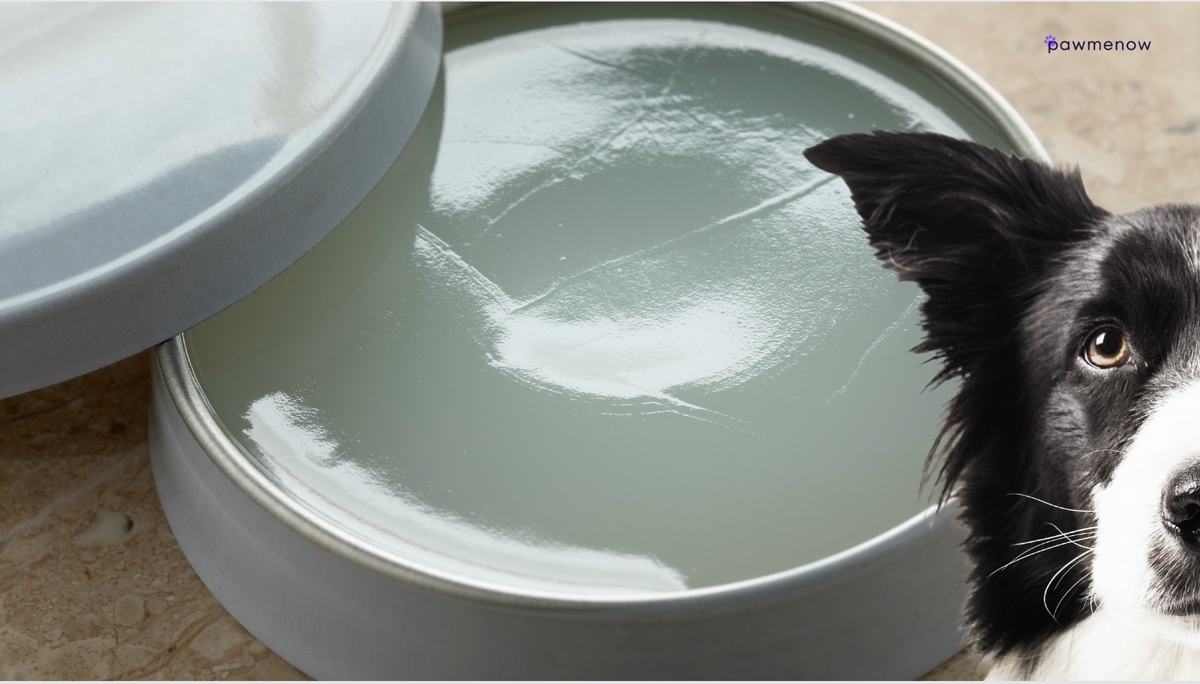Dog Ate Vaseline: Should You Be Worried? Here's What to DO

Our furry friends have a knack for getting into all sorts of unexpected situations, and sometimes those situations involve ingesting things they shouldn't. One such scenario is when your beloved canine companion decides to snack on a jar of Vaseline.
Dogs are naturally curious creatures with a strong need to investigate, which can occasionally lead to unexpected outcomes. In this article, we will look at the potential risks, what to do if your dog eats Vaseline, and how to prevent future incidents of this kind.
Why dogs ingest strange substances?
Dogs have a natural inclination to investigate and taste unfamiliar objects, often driven by their heightened sense of smell and taste. Puppies, in particular, are notorious for chewing on things as a way of exploring their surroundings and alleviating teething discomfort.
However, even adult dogs can develop a sudden interest in ingesting non-food items, a behavior known as pica. This behavior can be triggered by boredom, stress, nutritional deficiencies, or simply the novelty of an item.
Why does my dog eat Vaseline?
A dog may eat Vaseline because it smells or tastes good to it. For example, if you have a lip balm or product that contains flavored Vaseline, your pup may find it tasty and simply lick it as random food.
Or, if your dog licks you after you apply lip balm, it may just be because it loves you and the flavor appeals to it.
Vaseline: Harmless or Hazardous? 👀
Petroleum jelly, also known by the brand name Vaseline, is a multipurpose substance frequently used to moisturize, protect, and hydrate dry skin.
While vaseline is typically regarded as safe for human usage, it can be difficult to determine whether it is suitable for dogs
In most circumstances, your dog will not likely suffer any major consequences from eating a little amount of vaseline. It is non-toxic and does not affect the digestive system as it moves through. However, there are a few things to take into account:
- Quantity: A small lick or ingestion of a tiny amount is generally not cause for concern. But, consuming a lot of it could cause diarrhea and vomiting as well as gastrointestinal distress..
- Additives: Some Vaseline products might contain additives or fragrances that could be more problematic if ingested in larger quantities.
- Choking Hazard: The consistency of Vaseline could pose a choking hazard if ingested in large amounts or if your dog has a tendency to swallow non-food items whole.
- Aspiration Risk: Inhaling Vaseline while eating it could potentially lead to aspiration pneumonia, although this is relatively rare.
What to DO if your dog eats vaseline
Assess the quantity
If you suspect your dog has ingested Vaseline, try to determine how much he/she consumed. You can use this information to determine the level of danger and decide whether you need to consult a veterinarian.
- Monitor for Symptoms: Keep an eye on your dog for any signs of gastrointestinal distress, such as vomiting, diarrhea, or lethargy. These symptoms are usually short-lived and resolve on their own.
- Contact Your Vet: If your dog consumed a significant amount of Vaseline, is showing severe symptoms, or if you have any concerns, it's best to contact your veterinarian for guidance. They can provide personalized advice based on your dog's size, health, and the amount ingested.
Prevention is Key 🔑
To prevent your dog from indulging in Vaseline or other non-food items, consider the following measures:
- Supervision: Keep a watchful eye on your dog, especially during their exploration phase or when they're left unsupervised.
- Enrichment: Provide engaging toys, puzzles, and activities to keep your dog mentally stimulated and less likely to resort to destructive behaviors.
- Training: Basic obedience training and commands can help redirect your dog's attention away from potential hazards.
- Pet-Proofing: Store products like Vaseline and other potential hazards out of your dog's reach.
When Dogs Eat Unusual Things:
- My Dog Ate a Tea Bag: What Should I Do?
- Help! My Dog Ate Drywall – What to Do Next
- Dog Ate Cardboard? Here's What You Need to Know
- Dog Ate a Tennis Ball? Steps to Ensure Your Pup's Safety
Final Verdict 💬
While discovering that your dog has eaten Vaseline might raise some concern, in most cases, it's unlikely to lead to serious issues. However, it is advisable to act with caution, evaluate the situation, and, if necessary, contact the vet. You may reduce the chances of such accidents and protect your furry friend's wellbeing and pleasure by emphasizing prevention and providing a safe environment for them.
FAQ
Is it OK for dogs to eat Vaseline? Although theoretically non-toxic for dogs, Vaseline is not without risk. If consumed excessively (and they will lick it off), it may upset the stomach and result in vomiting or diarrhea. Vaseline creates a layer over your dog's skin that traps bacteria, dust, and poisons.
Can I give my dog Vaseline for a blockage? If your dog has a blockage/constipation, consult a vet immediately. Trying home remedies like Vaseline is risky and can harm your dog. Vaseline is not safe for ingestion and could worsen the situation. Always seek professional veterinary advice for your pet's health.
Can I put Vaseline on my dog's wound? Using Vaseline on a dog's wound may not be the best choice. Vaseline is not designed for wound care and could potentially trap bacteria or delay proper healing. It's advisable to consult a veterinarian who can recommend appropriate wound care products and techniques to ensure your dog's wound heals properly and without complications.
Can I put Vaseline on my dog's paw? Applying a small amount of Vaseline to your dog's paw pads can offer temporary protection from harsh weather conditions, like cold or hot surfaces. However, if your dog has paw issues such as cuts, cracks, or irritation, it's important to address the underlying problem. Consult a veterinarian for proper assessment and treatment of paw issues.
Can you use Vaseline on dogs' ears? Using Vaseline on a dog's ears is generally not recommended. If your dog has ear problems, such as itching, redness, or discharge, it's crucial to have a veterinarian examine their ears. The vet can determine the cause of the issue and recommend appropriate treatments or medications specifically designed for ear care in dogs.
My dog ate half a tub of vaseline. What to do? If your dog ate a significant amount of Vaseline, contact your vet immediately. Observe for symptoms like discomfort, vomiting, or diarrhea. Do not induce vomiting without vet guidance. Follow their advice for proper care.




Comments ()